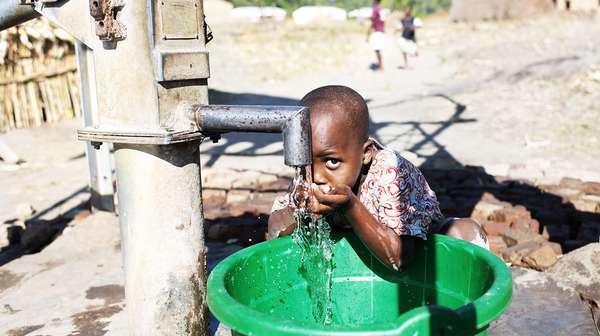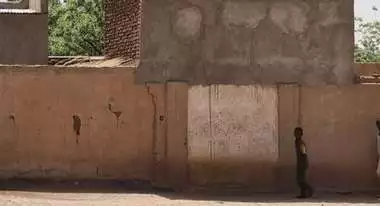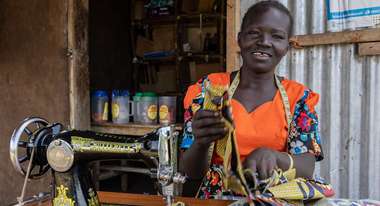Many people in Malawi are struggling with the effects of climate change.
Support for children with disabilities
Life in Malawi's largest refugee camp is difficult – especially for children with disabilities. In the care center, they are supported.

Traumatized and forgotten
Life in Malawi's largest camp for refugees is difficult. The majority of the approximately 40,000 refugees come from the Democratic Republic of Congo, Rwanda or Burundi. Refugees in Malawi receive little international attention or support. Moreover, the Malawian government offers little assistance to refugees. The 1951 UN Refugee Convention enshrines the responsibility of signatory states, but Malawi signed this treaty "with reservation," leaving open the possibility of restricting the movement and residence of refugees. In Dzaleka, they are not allowed to work outside the camp or attend government schools. These restrictions have made local people dependent on external assistance.
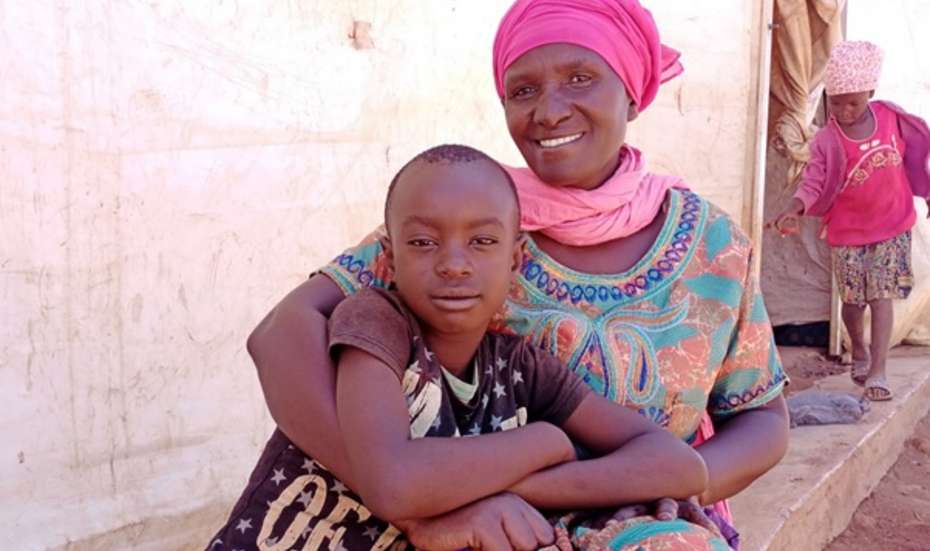
Many people are traumatized by the events they have experienced. Some children in the camp have physical disabilities and/or learning difficulties of varying degrees of severity. Together with its partner organization PACD, Welthungerhilfe (WHH) is committed to support the children. Under the leadership of a team of dedicated parents, 15 to 20 children are cared for every day. Each child receives appropriate support, depending on their needs. Some learn basic skills such as reading, writing and arithmetic.
Promoting friendships and education
Emmanuel Chikagambo also lives with his mother Jeanette in the Dzaleka refugee camp. Emmanuel was born with a neurological disorder that causes him to pass out repeatedly. This affected both his learning and his social life. "When he was four months old, I first noticed his condition. I took him to different hospitals, but nothing really changed," explains his mother, Jeanette. As he got older, it was compounded by the fact that he couldn't interact with other children. He couldn't play with them and instead showed aggression. "I was recommended to enroll him in the care center here at the camp, which I did. I see great progress in my son's development; he can now play with other children and is also making progress in his learning." Emmanuel's progress is promising. He should soon be able to attend the center's elementary school.
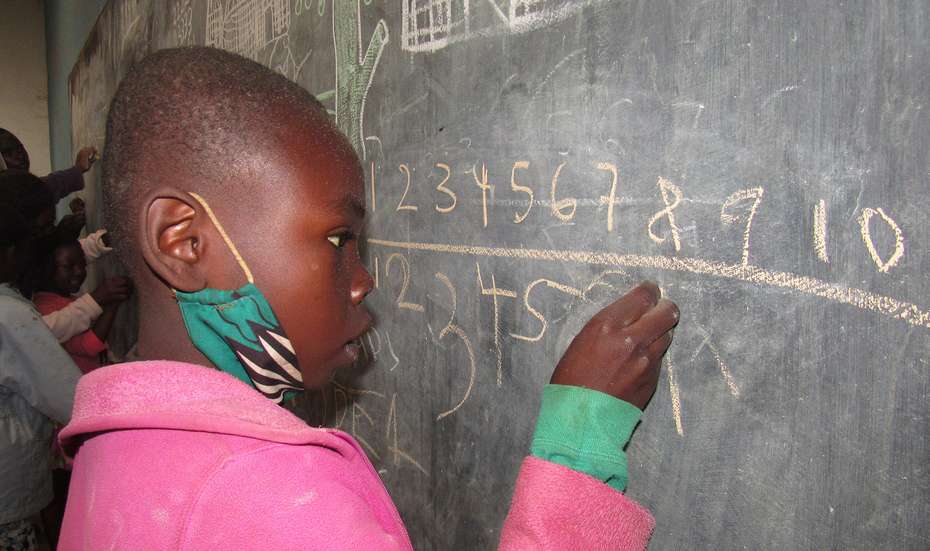
Support for children and parents
Since the center opened in March 2021, it has offered a wide range of activities. Currently, 122 children attend the school. Depending on the nature of their disability, they are divided into different groups in order to provide them with the best possible care. One room is adapted to the needs of deaf children. Another group is made up of children with learning difficulties. In the third group there are children with physical disabilities. In addition to classes, all students have access to a separate physiotherapy room and common recreational activities.
Parents also benefit from the activities that take place at the center. There are training sessions and support groups. The center also assists with referrals to doctors or hospitals. The center is open to all children with disabilities or chronic illnesses in the Dzaleka refugee camp and surrounding communities.
How Welthungerhilfe supports children in Malawi:
- Home visits to the families
- Training courses on the subject of care and support for parents and volunteers
- Informational talks
- Physiotherapy for the children
- Basic school education for the students
- Recreational activities
- Nutrition programs
- Support groups for the parents
- Awareness campaigns in the camp




